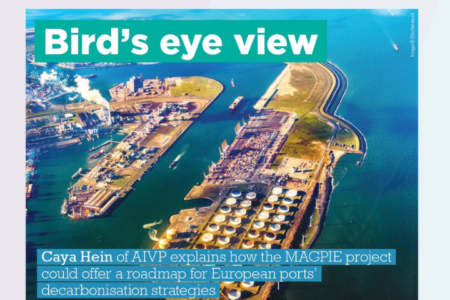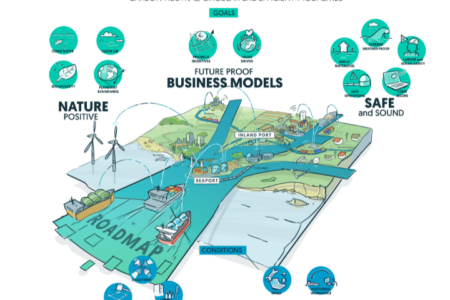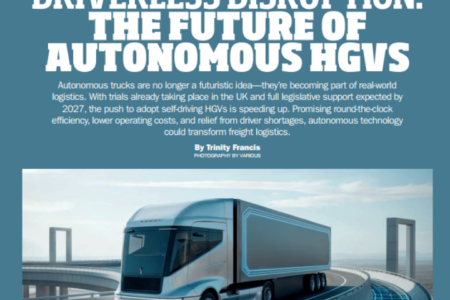For the “Spreading Road Traffic” project, we are working on shifting road distribution from peak hours to off-peak hours. We are doing this together with 9 market parties. We use their onboard computer data to see when the trips are made. By establishing a baseline measurement using data from 2022 and 2023, we can see the current state of affairs. Projecting this data to 2024, we can determine whether our lobbying efforts, along with other initiatives, have been effective in encouraging parties to move towards off-peak hours. The latest status shows that in 2024, 27% of all trips are made during off-peak hours. This is already a significant number. We hope to further increase this to 30-40%.
To also provide insight into emissions, we are exploring various solutions to map the emissions and assess whether off-peak driving has any impact on them.
In collaboration with another project within the Rotterdam Port Authority, we are also examining the potential of a container hub with one market party and whether this could also have an impact on off-peak driving. We are currently investigating this collaboration.
Celeste Mulwijk, Port of Rotterdam


